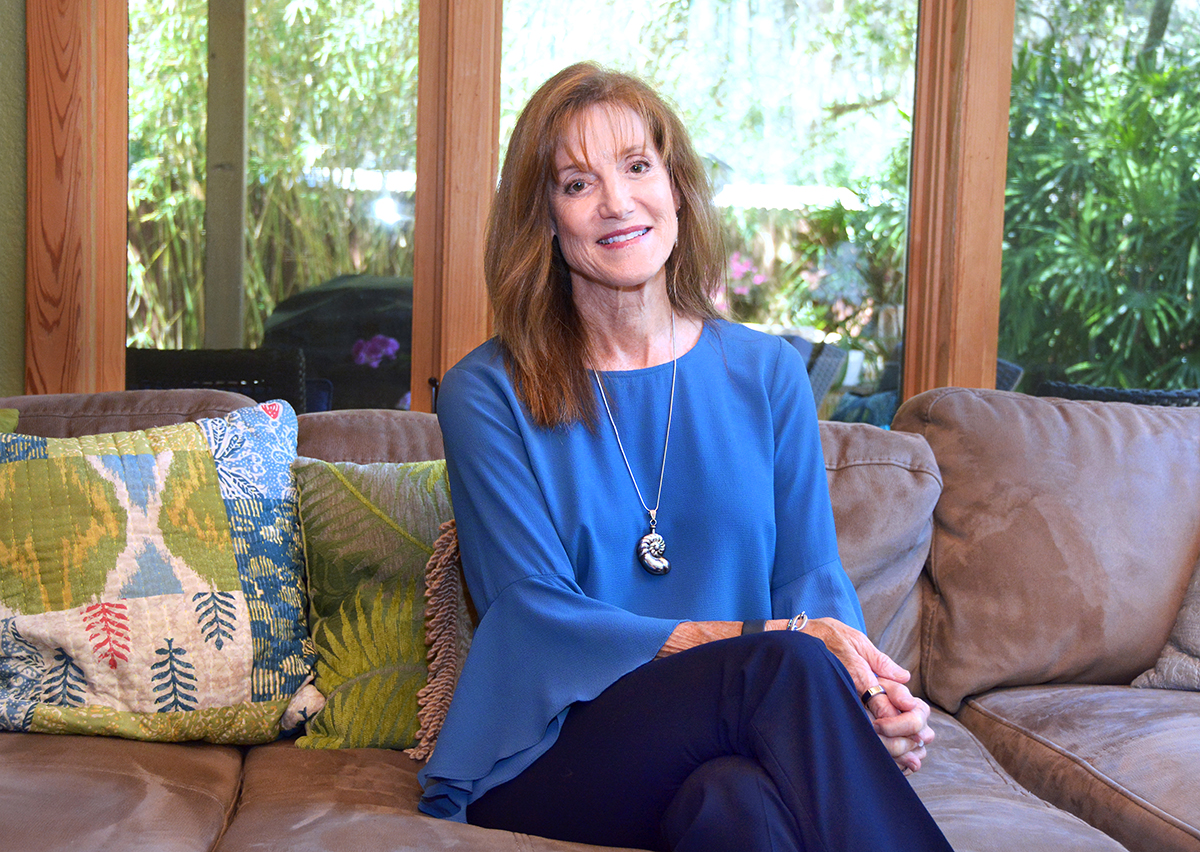The daily stressors we encounter, from work-related problems to domestic issues, seem to stem from sources other than ourselves. But the stress we feel is often the result of the way we view a situation.
The way we perceive something can often be changed by reframing; a technique used in cognitive behavioral therapy that helps with the identification of the meaning we attribute to events or experiences.
Licensed mental health counselor and longtime Winter Park resident Jill Hamilton Buss practices the technique with her clients and in her daily life. In this edition of Healthy Discourse, she discusses the application of reframing and how it helped her in a time of need.
Putting out the fire
Fireworks symbolize The Fourth of July for some people, but for a combat veteran they can trigger memories of war. That’s the basic idea behind the reframing technique; the fireworks are just fireworks, but the meaning that we attribute, often subconsciously, can cause us to suffer.
We all experience painful or troubling events – a loss, an illness, an accident, or worse. Like fireworks for a war veteran, triggers abound (songs, smells, sounds, significant dates, etc.) and may continue to plague us for a lifetime. If we are able to find a way to reframe the event or experience in a way that softens the hurt, empowers us, or gives us a way to view something more positively, we can greatly reduce our suffering.
Keep in mind, this isn’t a magic fix. If somebody has deep trauma, I recommend seeking trauma therapy. But by being aware of, and actively seeking to change the meaning we attribute to painful or difficult events, we can change the lens through which we see hurtful events. It doesn’t erase what happened, but it can often reduce our pain and give us a new perspective. It helped me and it helps many of my clients.
The wedding
My mother passed away many years ago, and my dad died within a year of her. And he happened to pass on the morning of my wedding.
I didn’t think I could go through with the day; I was devastated. But my husband-to-be pulled me aside and said, “Jill, now your mom and dad can be together at our wedding.” That reframe changed everything for me.
My parents were married for 50 years. They were partners or life, and imagining them back together and watching us start our life was wonderful. The event was the same; I was still sad, but the meaning I attached to it transformed how I was able to cope with it. It helped me see the good in a very hard situation.
The dad
Years ago, I had a client with childhood abuse issues. He was very successful and had a great relationship with his family but still struggled; the issues caused challenges in his relationship with his parents.
I tried to get him to see it in a different light, so I asked him, “What gifts did it give to you?”
He became very emotional; he was always very intent on living a different life than the one he had growing up and tried very hard to be a good father for his kids. It didn’t erase the pain, but it gave him a new lens. The pain wasn’t for naught.
Changing the story
Our brains can change, it’s all about neuroplasticity; the ability of the brain to adapt and function in a different way. The moment a stressful thing happens we tend toward negative meanings. If we can be intentional about rerouting to a healthier story, we can improve our perceptions moving forward.
We need to be gentle and compassionate with ourselves. We need to ask better questions of ourselves when something happens that can become a trigger. Whatever we ask of our brain, it’s going to work on finding an answer, even in the background as we go about our day or at night when we sleep. So, if the question is “what’s wrong with me” or “what was I thinking,” we’re essentially making the problem worse. We need to be asking what we can learn, or what good can come from the situation.
Whatever happened, we can potentially reframe to see a healthier picture.
The Healthy Discourse series focuses on physical, mental, financial, and professional health. Winter Park-based experts offer advice and insight through a brief conversation. the32789 does not offer, nor make recommendations for problem solving in any of these areas. The content published here is for informational purposes.



